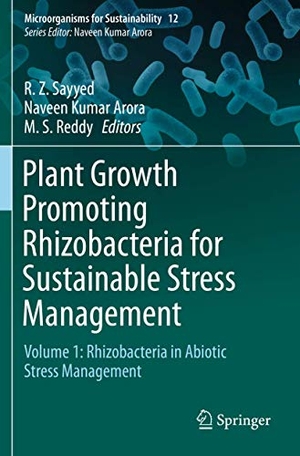Für statistische Zwecke und um bestmögliche Funktionalität zu bieten, speichert diese Website Cookies auf Ihrem Gerät. Das Speichern von Cookies kann in den Browser-Einstellungen deaktiviert werden. Wenn Sie die Website weiter nutzen, stimmen Sie der Verwendung von Cookies zu.
Cookie akzeptieren
Plant Growth Promoting Rhizobacteria for Sustainable Stress Management
- Springer Nature Singapore
- 2020
- Taschenbuch
- 384 Seiten
- ISBN 9789811365386
Increasing agro productivity to feed a growing global population under the present climate scenario requires optimizing the use of resources and adopting sustainable agricultural production. This can be achieved by using plant beneficial bacteria, i.e., those bacteria that enhance plant growth under abiotic stress conditions, and more specifically, microorganisms such as plant growth promoting rhizobacteria (PGPR), which are the most promising candidates in this regard. Attaining sustainable agricultural production while preserving environmental quality, agro-ecosystem functions and biodiversity represents a major challenge for current agricultural practices; further, the traditional use of chemical inputs (fertilizers, pesticides, nutrients etc.) poses serious threats to crop productivity, soil fertility and the
Mehr
Weniger
zzgl. Versand
in Kürze